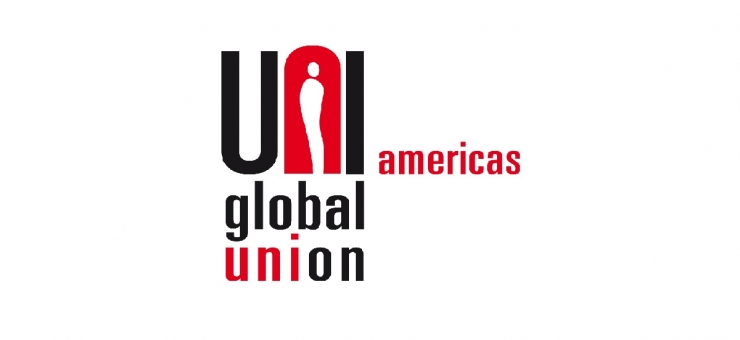UNI Americas condemns the decision of the US government to declare a national emergency caused by the situation in Venezuela

UNI Americas condemns the decision of the US government to "declare a national emergency due to the unusual and extraordinary threat to the national security and foreign policy of the United States caused by the situation in Venezuela"; on the 9th of March, Barak Obama issued a new Executive Order pursuant to the International Emergency Economic Powers Act (50 USC 1701) which grants authority for the President to exercise broad powers.
The U.S. decision is an unprecedented escalation and interference in the internal conflicts of Venezuela, putting at immediate risk the peace in Latin America, opening the door to the militarization of the region. The United States has a long history of violation of national sovereignties, democracy and human rights in Latin America, including the active collusion with coups since the 1950s, its involvement in the Condor Plan, and active support given to Latin American genocide dictatorships.
In the last two decades, Latin American nations have adopted sovereign decisions towards a more independent stance in economic, trade and policy matters, diversifying their international relations. These decisions were made after reconsidering, and in many cases rejecting, the social conditioning of the International Monetary Fund and other international organisations, as well as holding regional and sub-regional decision making instances without the presence of the United States, such as UNASUR and the Community of Latin American and Caribbean States (CELAC).
This autonomy of Latin American democracies, for the first time in centuries, has been reflected in an unprecedented improvement of social indicators, surprising the whole world with poverty reduction and growth of the middle class, in a region that was rich but had the worst levels of poverty and social inequality in the world.
Both achievements (autonomy and improvement of social indicators) are related to each other. Greater autonomy of Latin American nations has allowed governments to make decisions more closely linked to the interests of their people, and less to those of major international political and economic powers, which are a major cause of social injustice and underdevelopment in Latin America.
The autonomy of Latin America and the improvements in living and working conditions of its people, although still insufficient, also has its enemies. The old authoritarian and privileged sectors of Latin America and international power groups, with shocking levels of corruption and princely wealth, are reluctant to lose their privileges, as was expected. There is clear evidence of this resistance in their actions to destabilize democracies and coups with external support, which in some cases have been successful, like in Honduras and Paraguay, and others have failed, as was evident in Venezuela in 2002 and Ecuador in 2010.
The U.S. declaration of a national emergency, with a possible intervention in Venezuela, is an escalation against the process of autonomy of Latin America and the Caribbean, violating the principle of self-determination, threatening Latin American democracies and ongoing social improvement policies, and leading the United States once again to the dark side of its history.
During a visit to Caracas last week, the General Secretary of UNASUR, Ernesto Samper, after being informed by President Maduro about USA’s interference, said "faced with this evidence we forcefully declare that all States of UNASUR, without exception, will reject any internal or external attempt to destabilize the democracy in Venezuela ". Referring to the upcoming parliamentary elections, he said "it is the best scenario for addressing difficulties, confronting political differences, and settling disputes".
Victor Baez, General Secretary of the TUCA, the regional organisation of the ITUC for the Americas, said "Sanctions imposed from outside the country will not solve the internal problems; they will only make them worse. The only way to resolve the situation is through dialogue and respect for the democratically elected authorities. "
UNI Americas condemns the decision of the US government to "declare a national emergency" regarding Venezuela and expresses its firm and full solidarity with the people and the Venezuelan government and warns against political, economic and media actions of the privileged sectors inside and outside the continent, that ignore the democratic choices of the people, promoting tension and violence, with a clear objective to overthrow the government.

